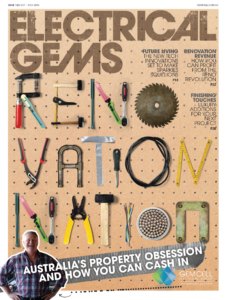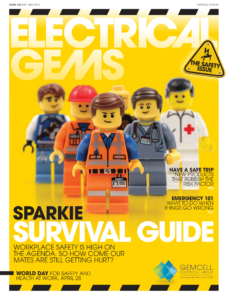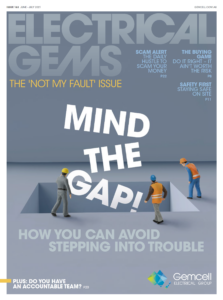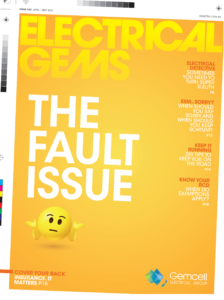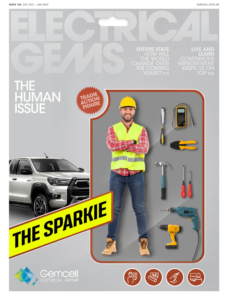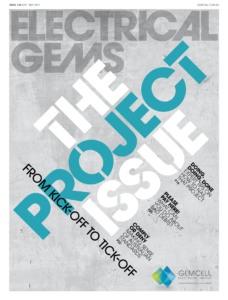Work stress – putting it to the test
Understanding what your work stressors are is the key to managing them well.
At face value, we might think we understand some of the key causes of stress for people working in trade businesses. After all, some of it’s fairly predictable.
But, as we know, the stats speak for themselves. Tradies are six times more likely to die from suicide than a workplace accident, and three times more likely to commit suicide than the average Australian. And the reality is that men account for 75% of all suicides in Australia.
And, look, it’s not all unique to tradie work either – some of the stress factors are shared by others who run their own businesses, and/or work long hours.
“Tradies definitely experience the kinds of depression and anxiety we see in other professions,” says Dr Katie Kjelsaas, Clinical Psychologist at Connections Count.
“In addition to this, we often see additional stress and strain related to juggling multiple roles. Most of the tradies we work with are trying to both run a business and be on the tools themselves, or they’re struggling with the transition from one to the other. There doesn’t seem to be much support in their industries to help with this.”
We all know this to be true. And many of us have experienced firsthand that journey from green apprentice to being the boss and everything that entails.
It’s difficult, it’s challenging – and the stress it brings can be compounded by some deep-rooted social conditioning, says Dr Sarah Valentine, Principal Psychologist at Cova Psychology in Melbourne.
“Many men grow up internalising messages that discourage emotional expression and promote self-reliance, such as ‘toughen up’ or ‘don’t show emotion’,” she says.
“This can make it harder for men to seek help or even recognise when something’s wrong.”
And, being ‘the boss’ – a.k.a running your own small business – brings a whole additional layer of stress.
Dr Sarah says, “Self-employed tradies often face a unique set of pressures that can quietly take a toll on their mental health. Running a small business means juggling everything – from quoting jobs and managing clients to handling paperwork and staying on top of finances.
“Add to that the unpredictability of income and the challenge of setting boundaries between work and personal life, and it’s easy to see how burnout can creep in. In fact, research shows that small business owners often experience higher rates of mental health issues due to the sheer weight of these responsibilities.”
While the practicalities of running your own business bring natural stressors, there are other – perhaps less obvious – impacts as well.
Sean Menere, Counsellor at Solid Foundations, says, “There are a few under-the-radar triggers for tradies that don’t get talked about enough.
“One is seasonal instability and the threat of work drying up unexpectedly, especially if you’re subcontracting. That financial uncertainty creeps in quietly but carries a heavy load.
“Another big one is identity and worth being tied to productivity. In the event of an injury or life event requiring time off work, it’s not just about lost income, it’s a hit to who the worker believes they are. There’s also often an unspoken competition around who can work the hardest, the longest, or keep up the bravado, which leaves little space for honesty or vulnerability and can become both a physical and mental safety risk.
“Industry subcultures can reinforce this. In some crews, if you show any emotion, it’s labelled weakness. That kind of environment can make guys in particular wear a mask every day, which gets exhausting.”
The knock-on effects – which cause more stress
For many, dealing with the stress that comes with the everyday tradie challenges then impacts other areas of life. From not having time to invest in yourself, your partner, family and friends, to being physically and mentally drained and in many cases physically injured, the toll can be significant.
Which then only serves to compound the whole issue.
“Another thing we see is relational stress and distress,” says Dr Katie.
“Expectations regarding operating hours – early starts, weekend jobs, pressure deadlines – can make it tough for tradies to balance work/relationship/ family expectations. And, given secure connections with loved ones contribute so markedly to wellbeing for everyone, when these suffer we see tradies really suffer mentally and emotionally as a result.
“Then, as a kind of double-whammy, that ‘she’ll be right’ culture of stoicism kicks in and can make it really hard for tradies to talk about what they’re experiencing and seek help. ‘Happy wife, happy life’, right? If you feel you’re failing in that family domain, it can be really hard to talk about that.”
Dr Sarah says the physical impact of what is a very tough, physical, job can also be a major contributor to stress.
“Things like being out in the sun and heat, heavy lifting and working with materials that pose safety risks, as well as long hours and the pressure to keep work flowing can have a big impact.”
“Many tradies are dealing with ongoing pain or fatigue, which can also wear down mental resilience over time. There’s also a lot of stress tied to job insecurity, tight deadlines and financial pressures – especially for those who are self-employed or managing their own crews,” she says.
“What makes these challenges different from other professions is that they’re not just emotional or psychological – they’re often wrapped up in the physical nature of the work, the risk of injury, and the need to appear capable at all times.
“It’s a culture where pushing through is valued, and that can make it hard to speak up when things feel overwhelming.”
The stats back this up. Research from the Australian Physiotherapy Association shows that nine out of ten Australian tradies have experienced a work-related injury in the past year, and one in four fear they will need to retire early due to stress on their bodies.
Culture changes needed
Of course, it’s one thing to understand the stressors and causes of mental health challenges – it’s another to tackle them. And that’s something we need to change, together.
Dr Sarah says, “Unlike in some other industries, there’s often less capacity to talk openly about mental health. This is both in an emotional sense and in practical terms; others in their workplace don’t always have the maturity for these conversations, and there may not be the time or privacy to have these discussions. It means a lot of tradies end up struggling in silence.
“The first and most important thing to recognise is that you are the backbone of your business. Without your wellbeing, everything else – your work, your income, your clients, your family, and you – starts to feel the strain.
“That’s why looking after your health, both mental and physical, isn’t a luxury or something to put off until later – it’s a priority.”













